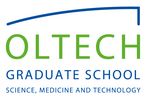Kontakt
OLTECH Travel Grant
On behalf of the Faculty V and Faculty VI, the Graduate School OLTECH offers grants for the attendance at international congresses, summer schools and lab visits.
The next application deadline for travels from January to June 2025:
15th November 2024
OLTECH research areas
OLTECH research areas
The main research areas that are covered by the Graduate School OLTECH are based on the research profiles of the UOL
For OLTECH we defined four main research areas:
- Environment and Sustainability
- Neurosensory Science and Systems
- Medicine, Health and Life Sciences
- Chemical, Physical, Mathematical and Computational Sciences
For subject-specific programmes follow the research areas.
Subject-specific programmes can be, for example, time-limited research training groups or a compilation of modules in a specific subject area.
Options and goals
The aim of the OLTECH doctoral training is to provide our doctoral candidates with in-depth training in the fields of knowledge and methods of their related disciplines and its fields of application as well as personal and interdisciplinary skills.
The focus here is on the acquisition of competences that qualify and prepare doctoral candidates for areas of work inside and outside academia, for example in business, administration and society.
The Graduate School is open to all doctoral candidates of School/Faculty V, VI (incl. Dr med.) and the Department of Computing Science (School/Faculty II). As a member, doctoral candidates have different options for using the services offered by the Graduate School and other related institutions:
Option 1:
Participation in individual courses (incl. participation confirmations and transcript of records)
Option 2:
Participation in individual courses and fulfilment of the requirements of the basic curriculum (structured doctorate) and, if applicable, a doctoral programme (final certificate of completion).
Competence areas
In accordance with the recommendation of the Conference of Ministers of Education and Cultural Affairs from 2019 (HQR) and the EU Competence Framework for Researchers (2022), the OLTECH programme offers qualification opportunities in the following competence areas:
A) Specialist knowledge and academic work
In this competence area, the focus is on acquiring the specialist knowledge required for the dissertation. This includes dealing with specialised terminology, methodological skills, familiarity with the academic community and funding landscape, the application of principles of good scientific practice, research ethics and integrity. In addition, doctoral candidates acquire skills in systematic and independent work, applying for funding, research management and research data management. The evaluation of research proposals and projects is also learnt.
B) Communication and cooperation
The second subject area covers the acquisition of skills in scientific writing, presentation and visualisation skills, including for the general public, and the associated promotion of knowledge transfer. In addition, knowledge of communication methods within a community, pedagogical and didactic skills, moderation and negotiation skills as well as media skills are acquired. However, motivation and commitment, teamwork skills, feedback methods, networking, professional behaviour, dealing with criticism and resistance, the ability to deal with conflict and counselling and support skills are also key skills that are developed.
C) Personal and interdisciplinary development
The third subject area consists primarily of interdisciplinary skills that serve the development of the doctoral candidate's academic career. These include coordination and organisational skills, project and resource management, time and self-management skills, and the effective, efficient and responsible use of resources. Self-promotion, the ability to reflect on self-awareness, openness to change and the ability to cope with pressure are also important. However, leadership (management), creativity, analytical and strategic thinking/judgement, ethical thinking and action, and independent and critical thinking are also essential skills that are developed.
Curriculum
NEW: In future all OLTECH members, regardless of their specialisation, can structure their individual programme according to the standardised basic curriculum. The basic curriculum provides a balanced structure of modules covering all relevant areas of expertise.
As an OLTECH doctoral candidate, you can also opt for a subject-specific focus e.g. a doctoral programme. This involves further subject-specific courses, which will be listed in a module handbook.
Basic curriculum
The basic curriculum is divided into compulsory basic modules and supplementary basic modules (compulsory electives). A total of at least 15 ECTS must be taken in the basic module area. The designation of the module areas and the associated modules as well as the determination of the minimum credit points to be achieved is regulated as follows for the module areas:
Compulsory basic modules (at least 9 ECTS)
1. Good Scientific Practice (at least 1 ECTS)
2. Scientific Writing and Publishing (at least 2 ECTS)
3. Presentation in an international context (at least 2 ECTS)
4. Colloquium / Group seminar (at least 2 ECTS)
Supplementary basic modules (compulsory elective, at least 6 ECTS)
5. Thesis Committee Meetings
6. Communication and Presentation Skills
7. Teaching Skills
8. Statistics, Programming, Data Management
9. Personal and Soft Skills
10. Career Development
Doctoral candidates can choose freely from the area of supplementary basic modules in order to obtain at least 6 ECTS. Further regulations are set out in the module handbook.
Subject-specific specialisations (up to 15 ECTS)
Doctoral programmes (e.g. research training groups) can be assigned to the research areas. The content of the subjet-specific specialisations can be chosen by the doctoral candidates in addition to the basic curriculum. Subject-specific specialisations (e.g. doctoral programmes) and their content, as well as the scope of the work to be completed, are specified in the module handbook.
Certification and completion of the OLTECH programmes
The basic curriculum, including any specialisations, is completed when a minimum of 30 credit points have been successfully completed in the above ratio.
Transition period for current doctoral programmes
For all members who registered with an OLTECH doctoral programme earlier than October 2024, a transition period is installed with the respective module lists and special curricula listed here



